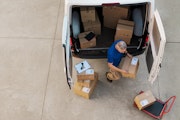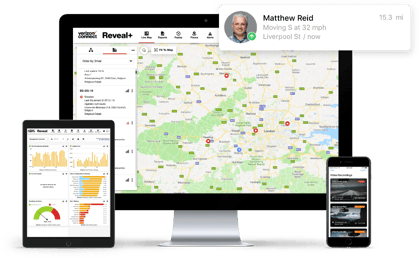9 Secrets to Reducing your Fleet Expenses
As a fleet owner, your day-to-day costs can quickly add up. What you don’t know is there are further hidden, expensive...
Read more
The bus and transportation industry is a challenging place to be in 2019. According to official government statistics, some 4.6 billion passenger journeys were made last year – that’s down almost 2% on the previous year and 4.2% since 2005.
Across that same time period (2005 to 2018) operating costs for bus services have increased in real terms from £2.83bn to £2.98bn. Falling passenger numbers and higher costs is not a combination that any business owner wants to have to contend with – and it’s no wonder why so many are turning to GPS technology to stem the tide.
The bus and coach industry is, of course, no stranger to GPS technology. The Department for Transport’s annual bus statistics report 2017/18 shows that 97% of UK buses feature a GPS Automatic Location Device (AVL), for example.
Modern GPS systems, however, go way beyond vehicle location and can help bus and coach companies overcome common challenges by driving greater efficiency, improving service and potentially reducing fuel costs.
Find the right solution for your business with our free Fleet Management Buyer’s Guide.
Boost efficiency: With margins growing ever-tighter, many in the bus and coach industry are faced with the unenviable task of doing more for less. GPS fleet management software can help you achieve this aim. For example, smarter scheduling and dispatch, along with enhanced routing can help to fit more stops into the working day as well as reduce unnecessary mileage and time spent behind the wheel.
Improve safety: When your cargo is literally your customers, fleet safety takes on a whole new level of importance. With GPS fleet management software in place, you can monitor unsafe behaviours such as speeding or aggressive driving to create a scorecard of your drivers’ performance. This scorecard can then be used to rank drivers and coach them into safer habits – the safer the driver, the higher up the rankings they climb. Audible, in-cab alerts can also be set to trigger whenever an unsafe practice occurs, allowing drivers to quickly correct their behaviour.
Reduce fuel costs: Coaching out behaviours such as speeding and aggressive driving doesn’t just improve safety, it can help to lower your fuel consumption. According to the Department of Transport, a vehicle travelling at 80 mph uses 10% more fuel than one travelling at 70 mph. That means a reduction in speed of just 10mph across your fleet can translate to a sizeable saving on your fuel bill. Other behaviours such as idling can also be monitored and reduced with GPS fleet tracking, helping you to lower fuel consumption and the associated costs.
GPS fleet management software enables bus and coach companies to leverage the fleet data collected every minute of every day, to potentially lower costs, increase efficiency and improve service. Find out how today.
Tags: All




Find out how our platform gives you the visibility you need to get more done.
As a fleet owner, your day-to-day costs can quickly add up. What you don’t know is there are further hidden, expensive...
Read moreVerizon Connect Reveal tracks the fleet data that can have a big impact on your business. These are things like where...
Read moreAt Verizon Connect, we can only provide the highest possible level of service to fleet managers and business owners by...
Read moreReveal tracks the fleet data that can have a big impact on your business. These are things like where your vehicles are...
Read more